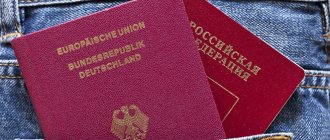Is dual citizenship allowed in the Russian Federation in 2021?
Russia is a huge country, and there is enough space for all its inhabitants, of whom there are already over 143 million people. But, nevertheless, Russian citizens cannot sit still; they are looking for new opportunities, not limiting themselves to one locality. For example, to open a business, purchase real estate, get a well-paid job, exchange knowledge and experience, and travel around the world. These are the goals that modern society sets. Seeing this trend, the Russian Government and the Government of other countries began to act much more democratically in visa issues.
Oddly enough, today residents of one country can freely integrate into another, while retaining all the rights of their native country; legally, this phenomenon is called “dual citizenship” or “second citizenship.”
Quite often, in the media and in Internet advertising, proposals are published to formalize transactions with the provision of dual citizenship for investments or the purchase of real estate. Many Russian citizens think that with this they actually get the right to have dual citizenship, but in fact, legally this is not entirely true. According to the Russian Constitution and Federal Law, it is allowed to have “dual citizenship” if a special international agreement has been signed with Russia.
If you look at the facts, then for now there is only one agreement in force with Tajikistan. It was first signed in 1995 and then extended in 2005. Previously, another agreement was in force with Turkmenistan, but the Government of Turkmenistan refused to extend it for a further period.
The “Treaties of Friendship, Cooperation and Mutual Security” with Armenia, Azerbaijan, and South Ossetia also have legal force. It is worth noting here that 90% of Abkhazians have Russian citizenship.
In 2021, ratification of the international agreement on dual citizenship has not been confirmed with other countries. In this case, we can recall the existing bill with Ukraine, but it is unlikely that it will be signed in the near future.
USA
The United States has not entered into agreements on dual citizenship with any country in the world. American laws do not prohibit having citizenship of other states, that is, a US citizen can become a citizen of any country, but the American authorities do not recognize this, considering him only as a US citizen.
Some receive it automatically - if they were born abroad from parents who are US citizens, or from citizens of another country, but in the United States. At the same time, US citizens can retain their existing citizenship, but cannot use it on US territory. If a person has two citizenships, one of which is American, he enjoys all the rights and responsibilities of an American citizen - he has the right to participate in elections, and is obliged to pay taxes to the American treasury. Those who become US citizens must swear an oath of allegiance to the United States. This oath means that the one who took it has already refused to remain allegiance to another state, even if he continues to remain its citizen, and imposes a number of restrictions.
Specifically, the law requires American citizens to use a U.S. passport to enter and exit the United States, but it is not contrary to U.S. law to use a passport from another country to enter or exit a country other than the United States.[6]
Taking the oath of citizenship as a U.S. citizen is sometimes viewed as renouncing one's former citizenship. However, when acquiring US citizenship, there is no verification of the validity of the refusal; for example, there is no requirement to surrender your old passport[7]. It should be borne in mind that, in accordance with the norms of international law (see sovereignty), such an oath in itself does not create new rights and does not cancel the old obligations of a citizen in his relations with the second country of citizenship, which is recognized by US law enforcement agencies[8].
Which countries allow dual citizenship with Russia?
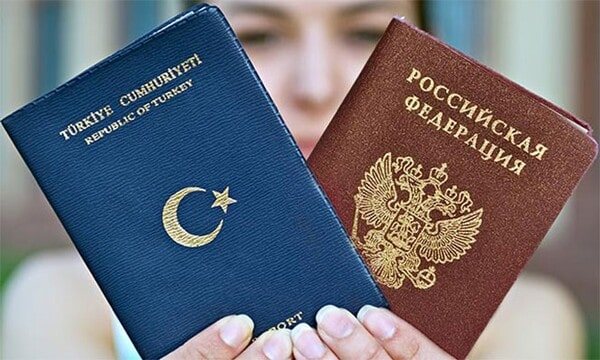
Let's look at the situation from the other side, which countries allow dual citizenship with Russia. The answer in legal status is the same, only Tajikistan. But if we talk about this topic more globally, dual citizenship is allowed in some countries by right of birth. This number includes:
- Türkiye;
- USA;
- Peru;
- Uruguay;
- Pakistan;
- Mexico;
- Poland;
- Croatia;
- Jamaica;
- Colombia;
- Canada;
- Barbados;
- Brazil;
- Argentina.
Russian citizens born in these regions will be considered binational under international law, i.e. persons with multiple citizenship. Upon reaching adulthood, they can choose: one of the countries where they plan to live permanently, or reserve the right to be considered citizens of two countries.
This information is not exhaustive for Russians, since there is another concept of “second citizenship”. Most likely, this is not a legal term in Russia, but a generally established one, because if you receive a second passport in St. Kitts and Nevis or on another island, it is unlikely to be recognized in Russia. But it cannot be said that it does not fundamentally change anything; its presence obliges an individual to take certain actions.
Second citizenship has significant differences from dual citizenship, but they do not contradict the Constitution of the Russian Federation. According to it, the Russian authorities cannot blame Russians for obtaining a second passport, but require them to be law-abiding in the notification.
Situation in Russia
Just a few years ago, no one was interested in the question of having citizenship in several countries, but since 2014, a genuine interest in citizens with foreign citizenship has arisen in Russia.
They must now be reported in a strict manner. If you have citizenship of three countries, a person is obliged to report to the authorities of the Ministry of Internal Affairs (formerly the Federal Migration Service) about each of them in a separate document within two months from the date of receipt. He needs to do the same if he has a residence permit or any other documents allowing permanent residence in other states. You can do this in two ways:
- submitting documents in person;
- through Russian Post, where the person’s identity must be verified with the passport.
Relief has been made for emigrants. They are not required to submit a notification, but as soon as the border of the Russian Federation is crossed, they are given 30 days to contact the Ministry of Internal Affairs.
Features of dual citizenship in foreign countries
In principle, there is a lot of information about dual citizenship, but what features of dual citizenship exist on each continent are not announced everywhere. It’s worth going deeper to understand the situation on the migration market. In 2021 the situation looks like this:
- Current circumstances associated with a large influx of immigrants from the Middle East have influenced changes in immigration policy in Europe. Now it’s not so easy to move there, and you can completely forget about second citizenship. In any case, this applies to the countries of Denmark and Germany. In Austria, the issue of dual citizenship is also negative, but opinion within the Government is strongly divided, some support its issuance, while others, on the contrary, vote against it. In Austria you can buy citizenship, but for a large sum, you must have a capital of €23.0 million - they need to be invested in the country’s economy.
- Arab countries set harsh conditions; even ethnic Arabs cannot receive official status. Monarchical foundations dictate their own routines, so in the UAE, Kuwait, Qatar it is impossible to acquire citizenship for immigrants from neighboring countries, Russians and other foreigners. Experts say the region will never open its borders that much. You are allowed to come there and invest a lot of money, but you will always be a guest.
- The countries of Southeast Asia are especially popular among the Russian-speaking population. Many live in Indonesia, Thailand, and Vietnam for quite a long time. It must be said that the region’s policy is not against residents from Russia, but it is necessary to have funds in the amount of $15,000-300,000, but even for this amount it will not be possible to obtain dual citizenship. The investor will be issued only a multiple visa for a period of 5-20 years.
- Literally 5-10 years ago there was a boom in the issuance of second citizenship in Cyprus, Spain, Italy, Greece, and Israel. Countries actively attracted foreign investment to support the economy, and therefore made concessions to foreigners for relatively small capital. Those who managed to capitalize and acquired dual citizenship. Now you can do the same thing, but with much higher capital. The initial bid reached €275,805, the maximum remains within €1,838,700.
- The most favorable situation is developing in South America; the authorities of Brazil, Argentina, and Chile are luring investments and creating simplified conditions for granting second citizenship. Gradually, Russians began to emigrate there for a while, since the conditions required them to live there for at least a year. Cash programs are also open where businessmen will find an opportunity to earn money. The most advanced economy in South America belongs to Brazil, but the easiest route to dual citizenship is recognized in Chile.
- Second citizenship is allowed in Oceania, which includes Australia, New Zealand, and Vanuatu. Demand for Australia and New Zealand either falls or rises again among Russians. It all depends on the conditions, sometimes they become simpler, sometimes they become more complicated. At the same time, Australia is one of the most expensive countries for obtaining dual citizenship. A foreigner must invest a minimum of $500,000.
- The Commonwealth of Independent States or CIS does not provide second citizenship to Russians, but some countries have signed international treaties. They talk about simplified conditions for relocating residents of the CIS. According to some reports, the Government of Ukraine will in the future allow Ukrainians to have dual citizenship.
Second citizenship by investment
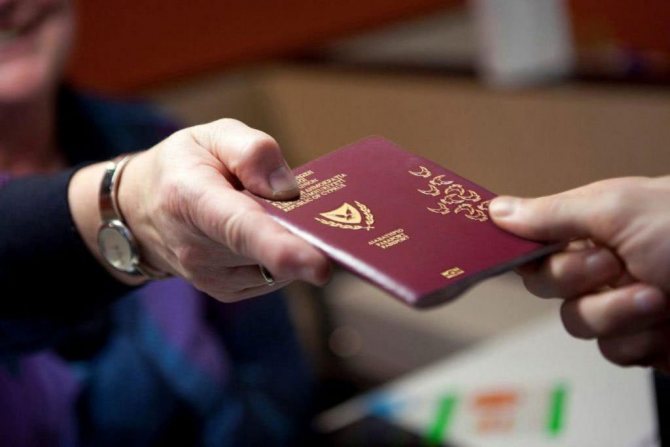
This method is suitable for those who wish to obtain a passport from a country that does not allow a foreigner to become its citizen without additional conditions. There are two options for compatriots: to renounce Russian citizenship or to invest financially in the economy of the country for which they are applying for citizenship.
Among the states offering second citizenship for investment, mention should be made of Bulgaria, Cambodia, Vanuatu, Malta, Moldova, Montenegro, Cyprus, and Austria. A complete current list of countries that actually sell citizenship, as of 2021, can be found in open sources.
Advice: before planning to obtain a second citizenship for investments, it is worth clarifying their amount and investment conditions, since such aspects may differ significantly depending on the chosen country.
List of countries that prohibit dual citizenship

Migration policy is not as loyal everywhere as in Russia; there are regions where the Government is against dual citizenship or a second passport. Various reasons are given: they do not want to lose national characteristics, welfare, they are afraid because of the immigration outflow. In general, each of these countries has something to lose, but only in the opinion of local authorities. The form of government often also influences - dual citizenship was never allowed under monarchy and socialism.
In 2021, there is still no law allowing one to become a second or dual citizen in the following countries:
- South Korea
- North Korea
- Japan
- China
- Hong Kong
- Macau
- Thailand
- Cambodia
- Vietnam
- Indonesia
- India
- Kazakhstan
- Ukraine
- Belarus
- Austria
- Sweden
- Germany
- Denmark
- Azerbaijan
- UAE
- Kuwait
- Qatar
In principle, Russia actively cooperates with these countries, but unfortunately, it is almost impossible to acquire dual citizenship from them due to the domestic ban. There are some exceptions when the authorities are interested in attracting a Russian scientist or artist.
Can a Russian have a second citizenship if there is no international treaty?
A Russian can be a citizen of several countries , that is, have a second, third, etc. citizenship. But if the Russian Federation does not have an agreement with another state, then in Russia this will not be recognized as dual citizenship. second citizenship is applied to such a situation .
Accordingly, if you have passports of the Russian Federation and any other country (except Tajikistan), then this will be a second , not dual citizenship.
A Russian who wants to obtain citizenship of another state is not obliged to part with his Russian passport. The laws do not require this.
“The acquisition by a citizen of the Russian Federation of another citizenship does not entail the termination of citizenship of the Russian Federation,”
— Article 6 of Federal Law-62 “On Citizenship of the Russian Federation.
But at the same time, the law specifies that if a citizen of the Russian Federation has become a citizen of another country, then for Russia he remains only a Russian . A passport of another state on the territory of the Russian Federation will not be taken into account.

A Russian who has several citizenships is recognized in the Russian Federation only as a citizen of the Russian Federation, excerpt from Article 6 of the Federal Law “On Citizenship of the Russian Federation”
Therefore, Russians who have acquired one or more passports from other countries (except Tajikistan):
- when entering the Russian Federation, they show a Russian passport;
- any documents in Russia are issued using a Russian passport;
- When contacting government agencies, they also act exclusively as Russians and present a Russian identity document.
Russian legislation is also friendly to foreign citizens who wish to join the ranks of Russians.
Future citizens of the country are not forced to renounce their original citizenship (previously they were, but since July 24, 2020, Russian passports began to be issued without renouncing other citizenship). Therefore, when a foreigner becomes a citizen of the Russian Federation, he retains his previous citizenship (if his native state allows its subjects to have several passports).
About the difference between dual and second citizenship
Differences between dual citizenship and second citizenship
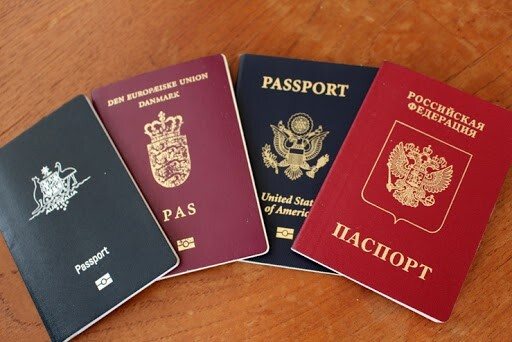
Before acquiring a second citizenship, any resident of Russia should know the other side of the process. This means legal liability. It is prudent to first familiarize yourself with Article 62 of the Constitution of the Russian Federation, which states that “dual citizenship” is recognized in Russia if an international agreement has been signed with a foreign state. First of all, the characteristics of the status are expressed in the settlement of joint relations. For example, a citizen of both states has the right to join the army from Russia or Tajikistan. In this case, we use Tajikistan as an example, since there is an international treaty with this state. Issues of double tax liability are resolved separately. In other words, all rights of an individual are regulated in favor of one state or another.
If we look at another legal term “second citizenship”, then the Russian Government does not prohibit its existence, the only difference is that it will not be recognized in Russia according to legal norms. In other words, you have paid taxes in Russia and will continue to pay them in full; If you need to go to serve in the army, then you must go through it. There are no concessions provided. Also, do not forget that if you are simultaneously a citizen of Cyprus or another country, you will have to comply with all the laws and regulations there. It makes no difference to the Government of Cyprus whether you have Russian citizenship or some other, it will require the fulfillment of all obligations, as from a Cypriot resident. In other words, you need to be a law-abiding resident and know the laws of both countries.
Criticism of the law
The law has been subject to significant criticism for unclear terminology and harsh penalties for violating the rules, since usually this type of liability, such as criminal liability, provides for the commission of socially dangerous acts, which cannot in any way include failure to provide information about foreign citizenship.
Many famous personalities spoke about the law, for example, journalist Vladimir Pozner, who has citizenship of three countries - Russia, France and the USA. He believes that such a procedure for registering citizens makes sense only if they are applying for positions in the government or positions in the security forces. For ordinary citizens, this is devoid of any logic.
Also, after the adoption of the law, many feared that notification of the relevant authorities and entry into the register would entail restrictions on entry into and exit from the country. Some believe the law will be the first step to ban multiple citizenship in Russia.
Is the legislator preparing to present a new surprise based on the already collected data on Russians with foreign passports, or has the original idea been completely forgotten, as is often the case with Russian laws? The answer is still unknown, but for four years no new tightenings have been adopted , so one can only guess about the sacred meaning of the law, which has become just another bureaucratic procedure.
So, today, triple citizenship in Russia is allowed and does not have any restrictions on the part of the country, provided that a notification is submitted to the internal affairs bodies within the time limits specified by law. Punishment is provided only for failure to comply with the notification procedure.
Legal responsibility for second citizenship
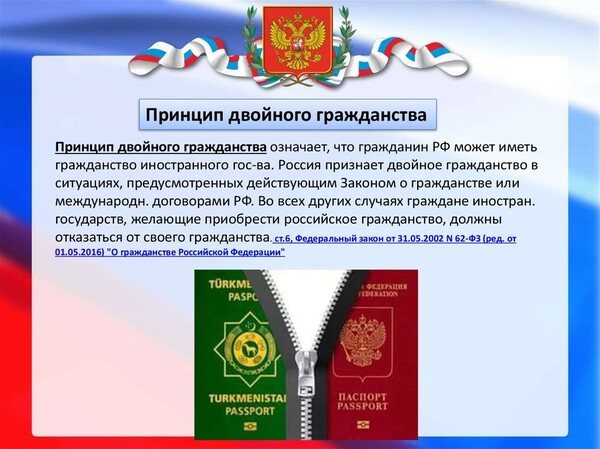
There is also a domestic rule regarding persons with dual citizenship. Such individuals do not have the opportunity to obtain a position in government agencies or the media. To a greater extent, this is why there is an obligation to warn Russian law enforcement agencies, in particular the Ministry of Internal Affairs at the place of residence, about the new status of a “citizen of two states.”
This is done as follows:
- After receiving foreign citizenship, you must visit the Russian Ministry of Internal Affairs within 60 calendar days if you are directly in Russia. If outside, then upon arrival you must notify within 30 calendar days.
- A sample notification can be downloaded through legal portals or the form can be requested from a government agency. You can use this link https://base.garant.ru/72001458/f7ee959fd36b5699076b35abf4f52c5c/, you need to download the form to your computer and fill out all the required fields. The text can be typed or filled in manually. It is not allowed to correct, include an abbreviation, or shorten anything. The specified information must correspond to the available official documents of the individual.
- There are separate notification forms for minors and guarantors. They can also be downloaded through the legal resource Garant or some other.
- An individual must attach notarized copies of all passports to the notification. The information must match the data reflected in paragraphs 2-3 of the notification - series, number and date of issue.
- Next, the prepared package of documents for all family members is sent to the Ministry of Internal Affairs at the address of residence or temporary registration. It is also permitted to send notice by registered mail.
There is no need to ignore such a routine, otherwise you will face administrative and criminal liability. According to Russian legal documents No. 62-FZ and Order of the Ministry of Internal Affairs of the Russian Federation No. 267 dated May 3, 2018, the following measures are applied:
- transmission of a notification exceeding the prescribed period, that is, late, entails a fine of 1 thousand rubles;
- if you refuse to notify the Russian authorities, a fine of 200 thousand rubles is provided;
- in some cases, a decision is made on a fine of 200 thousand rubles and corrective labor of about 400 hours;
- at the time of the trial, the individual does not have the right to leave Russia.
Pros and cons of dual citizenship

The tendency to live in two countries or even three is increasingly attracting Russians, but we should not forget about the disadvantages. Experienced binationals who encountered both pros and cons identified them in the following order.
pros
The advantages of foreign citizenship along with Russian citizenship most often include:
- free movement in many countries, especially if you have a European passport;
- affordable medicine, preschool, school and higher education;
- allowed to apply for social benefits and subsidies both in Russia and in another country;
- easy employment for any position abroad;
- remote work with salary in both countries;
- diplomatic support in any country where you have citizenship status;
- saving money - prices are the same as for locals without additional tax for foreigners;
- allowed to claim any benefits provided not only in Russia;
- scaling your own business;
- opening a business as a permanent resident without paying additional state fees;
- improving language skills increases the chance of finding a well-paid job;
- you can invest, buy real estate, not only in Russia;
- the opportunity to take out a loan abroad at lower rates;
- you have permission to open a bank account or payment card abroad.
Minuses
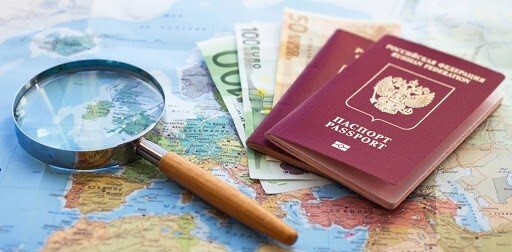
The main disadvantages of dual or triple citizenship outside Russia are the following:
- double taxation requires additional financial costs;
- sometimes in another country the number of taxes is much higher than in Russia;
- many developed countries have a progressive tax rate;
- in some foreign countries, not only men, but also women are drafted into the army;
- when a child is born abroad, he may not be given to a Russian woman returning to Russia;
- It is not easy to control your own property when you are abroad or vice versa;
- you need to make regular medical contributions in both countries;
- payments for utility services will have to be paid not only in Russia;
- everywhere you need to follow bureaucratic rules for collecting certificates and paying receipts;
- political, economic, and legal information in both countries should be constantly monitored.
International treaties of the Russian Federation on dual citizenship
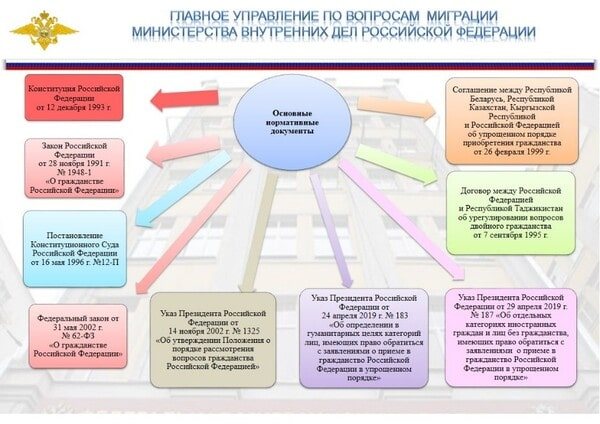
In addition to the international agreement between the Russian Federation and Tajikistan on dual citizenship dated September 7, 1995, other agreements are in force. They are mainly applicable to neighboring states and partner countries. These include:
- Agreement on simplified acquisition of citizenship in the Russian Federation dated February 26, 1999, signed between the Russian Federation, the Republic of Kazakhstan, the Kyrgyz Republic, and the Republic of Belarus.
- International contract of friendship, cooperation and mutual security with Armenia, Azerbaijan, South Ossetia.
- Agreement on dual citizenship with Turkmenistan (terminated on May 18, 2015).
The list of legislative acts on dual citizenship in Russia includes:
- The current Constitution of the Russian Federation, Article 62 stipulates the conditions for foreign citizenship.
- Order of the Ministry of Internal Affairs of the Russian Federation dated May 3, 2018 No. 267, it specifies the procedure for notification of foreign citizenship.
- Federal Law “On Citizenship of the Russian Federation” dated May 31, 2002, the issue of dual citizenship is discussed in Article 6.
What is the maximum number of citizenships a person can have - dual or second?
Most often, the desire to obtain another citizenship arises from persons who need additional protection from the actions of various authorities of their home country. There can be many reasons for this:
- Minimize your business taxes.
- Receive asylum for protection from political or economic persecution.
- Remove restrictions on travel around the world associated with obtaining visas.
When a person has several passports from different countries, this is commonly called dual citizenship. The legal meaning of such a term is narrower. In fact, more often they mean “two citizenships”.
Dual citizenship always implies that a person, when acquiring a second citizenship, has received consent from the state of which he was already a citizen before. There is a specific list of countries that allow second citizenship. For example, the Russian Federation, in which it is mandatory to notify the Federal Migration Service of a change in status within a month.
Over 80 countries around the world demonstrate a loyal attitude towards dual citizenship. Among them are France, Belgium, Poland, the USA and Latvia.

However, there are states that prohibit dual citizenship. These include Germany and Ukraine (political discussions have begun on introducing a bill recognizing dual citizenship). Before becoming a German citizen, you must provide a written statement renouncing your citizenship of other countries.
A person can have dual citizenship if an appropriate agreement has been concluded between countries with mutual recognition of two citizenships, that is, they are considered equal. The Russian Federation has agreements with such content only with Tajikistan and Turkmenistan.
Here, for example, is an excerpt from Russian legislation - Constitution of the Russian Federation, Article 62:
"1. A citizen of the Russian Federation may have citizenship of a foreign state (dual citizenship) in accordance with federal law or an international treaty of the Russian Federation.
2. The fact that a citizen of the Russian Federation has citizenship of a foreign state does not detract from his rights and freedoms and does not relieve him of the obligations arising from Russian citizenship, unless otherwise provided by federal law or an international treaty of the Russian Federation.
3. Foreign citizens and stateless persons enjoy rights in the Russian Federation and bear responsibilities on an equal basis with citizens of the Russian Federation, except in cases established by federal law or an international treaty of the Russian Federation.”
Dual citizenship status allows you to retain all civil rights in both countries. Depending on which of them a person currently lives in, he receives appropriate social security, pays taxes and undergoes military service. If a man has served in one of the countries with dual citizenship, he will no longer be drafted into the army in another.
These persons receive protection and patronage from two states at once. Dual citizenship is inherited by children.
Second citizenship (not dual) arises when, for example, a Russian citizen receives citizenship of Dominica or any other country with which the Russian Federation does not have a concluded treaty. This practice is not illegal. But this is not dual citizenship. While on Russian territory, Russian legislation will only recognize his Russian passport.
Let's say a person has US and Russian passports. Having arrived on Russian territory, he will be considered only a citizen of Russia with all the ensuing rights and obligations. And when he flies to the United States, he will be considered an American citizen there. In third countries, they can choose which passport to present to authorities for identification, purchasing goods and receiving services.
Accordingly, the Russian authorities may not be informed about the second citizenship. This act will not be illegal. Moreover, in world practice it is not customary to notify other countries about the acquisition of their citizenship by foreigners.
Let's sum it up
“Dual citizenship” and “second citizenship” are relatively different concepts with different legal responsibilities. Regulated by the Constitution of the Russian Federation and federal law. Today Russia has only one international contract for dual citizenship with Tajikistan. Other countries give second citizenship according to their Dual Citizenship Laws. At the same time, it is important not to violate Russian laws. It is definitely clear that the Russian people are one of the immigrating nations in the world. They experience life away from home on many different continents.
